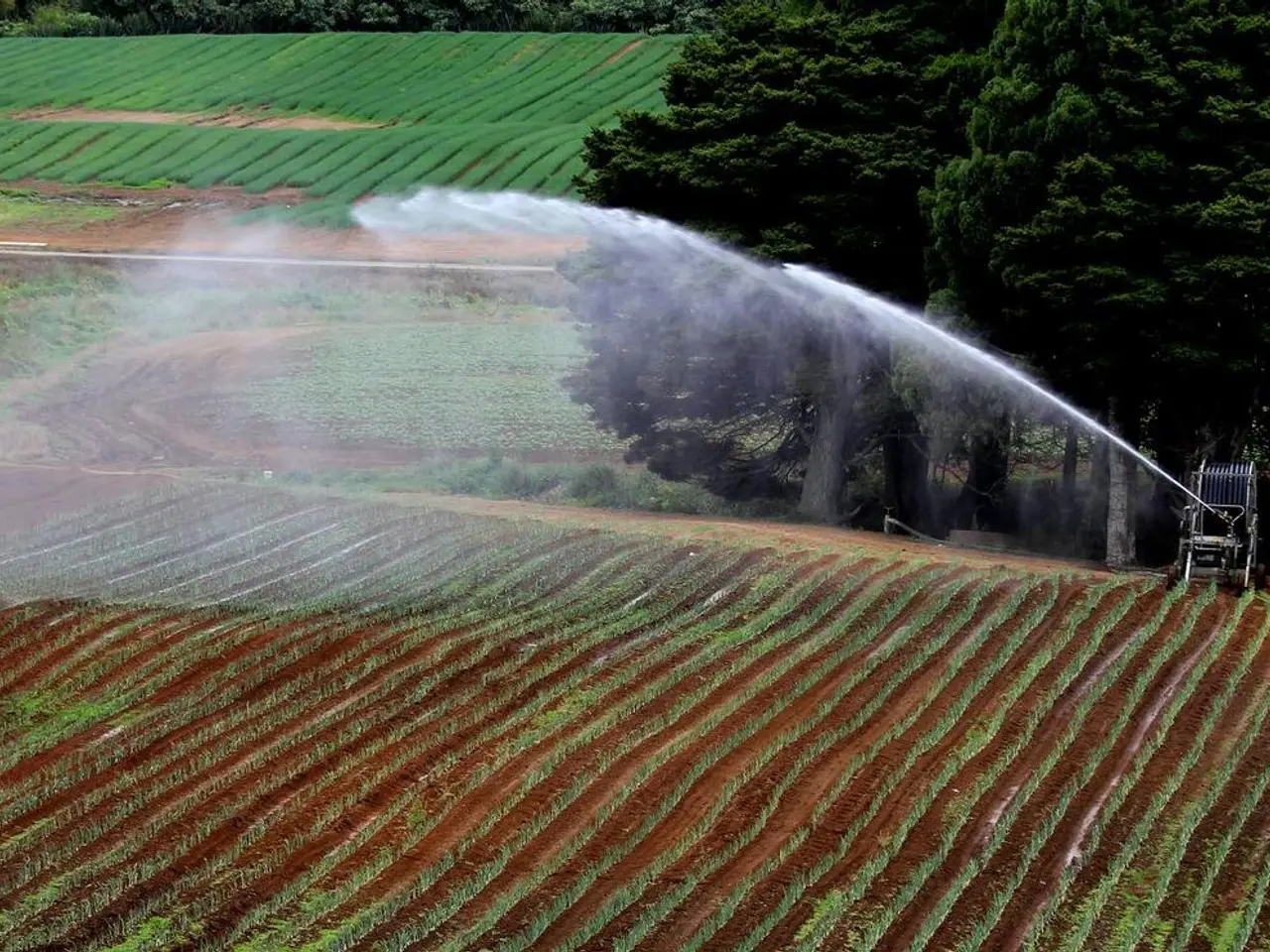Government Announces Establishment of Three Additional Nano Fertilizer Plants by Public Sector Undertakings and Fertilizer Companies
In a bid to address the concerns of soil degradation, water contamination, and potential harm to human health due to excessive urea use, the Indian government is actively promoting the use of nano fertilizers.
The Department of Fertilizers has incorporated nano fertilizers, such as Nano DAP and Nano Urea Plus, into its monthly supply plans. These innovative fertilizers, which are smaller in size but packed with nutrients, are expected to offer a more efficient and sustainable solution for Indian farmers.
Currently, India has 7 operational nano urea plants and 3 nano-DAP plants, with a combined production capacity of 44.86 crore bottles annually. This capacity is set to increase significantly with the addition of three more nano fertilizer plants, which will add an estimated 17 crore bottles to the annual production capacity.
Since their inception, fertilizer companies have sold 10.68 crore bottles of nano urea and 2.75 crore bottles of nano DAP. These sales have reached all regions of India, including tribal-dominated areas, indicating wide distribution and growing adoption among farmers.
The Government of India does not directly establish these nano-fertiliser plants but actively facilitates and encourages their expansion across the country. To promote the usage of nano fertilizers among farmers, the government has pursued various outreach activities including awareness camps, webinars, field demonstrations, Kisan Sammelans (farmers' gatherings), and the production of informational films in regional languages. The government has also engaged with state governments on the usage of nano fertilizers through different forums and zonal conferences to boost adoption rates.
Union Minister of State for Chemicals and Fertilizers, Anupriya Patel, has informed that seven Nano Urea plants have been established across the country. These plants have a combined annual production capacity of 27.22 crore bottles, each containing 500 ml of Nano Urea.
To meet the growing demand, three more nano fertilizer plants are proposed to be set up, with a combined estimated production capacity of 17 crore bottles per annum. Demonstrations are being conducted under the guidance of ICAR and State Agricultural Universities (SAUs) to showcase the effectiveness of nano fertilizers.
The central government promotes the use of nano fertilizers among farmers through various forums and initiatives. Awareness about nano fertilizers is being spread through various activities such as camps, webinars, Kisan Sammelans, educational films in regional languages, and at Pradhan Mantri Kisan Samridhi Kendras (PMKSKs).
As part of its ongoing efforts, the government is also integrating nano fertilizers into major agricultural schemes like the National Food Security Mission (NFSM) and the National Mission on Edible Oils (NMEO). Additionally, initiatives like Kisan Drones, battery-operated sprayers, and training for Village Level Entrepreneurs are being implemented to promote efficient application of nano fertilizers.
The first publication of this news was on 30 Jul 2025, 08:25 IST. These initiatives underscore the Indian government's commitment to sustainable agriculture and the well-being of its farmers.
- The health-and-wellness sector, through sustainable agriculture practices, is being fostered by the Indian government as they promote the use of nano fertilizers, such as Nano DAP and Nano Urea Plus, for a more efficient and eco-friendly solution in the industry.
- In the realm of finance, the business of nano fertilizers is expanding significantly, with the addition of three more nano fertilizer plants, anticipated to add 17 crore bottles to the annual production capacity.
- Awareness about the science of nano fertilizers and their benefits for fitness-and-exercise in farming is being disseminated across India through various government initiatives like camps, webinars, and films in regional languages, reflecting the government's dedication to the nutritional well-being of the country's agricultural sector.




